
Published:
Readtime: 10 min
Every product is carefully selected by our editors and experts. If you buy from a link, we may earn a commission. Learn more. For more information on how we test products, click here.
You’re on the hunt for an immune booster and we can’t blame you, given the current health crisis. Just a reminder: COVID-19 is reportedly most hazardous to those with underlying medical conditions and weakened immune systems. Before you go to unverified extremes, remember that there are a number of immune-boosting, wholesome foods out there. Not only can they improve your personal health, but most of them taste pretty damn good. Sometimes, the natural way is the best way. Here’s your trusty guide, complete with a number of immune system boosters.
List of Immune Boosting Foods
With COVID-19 taking the planet by storm, you’ll want to grocery shop wisely and boost your immune system as much as possible. Start with the following immune-boosting foods:
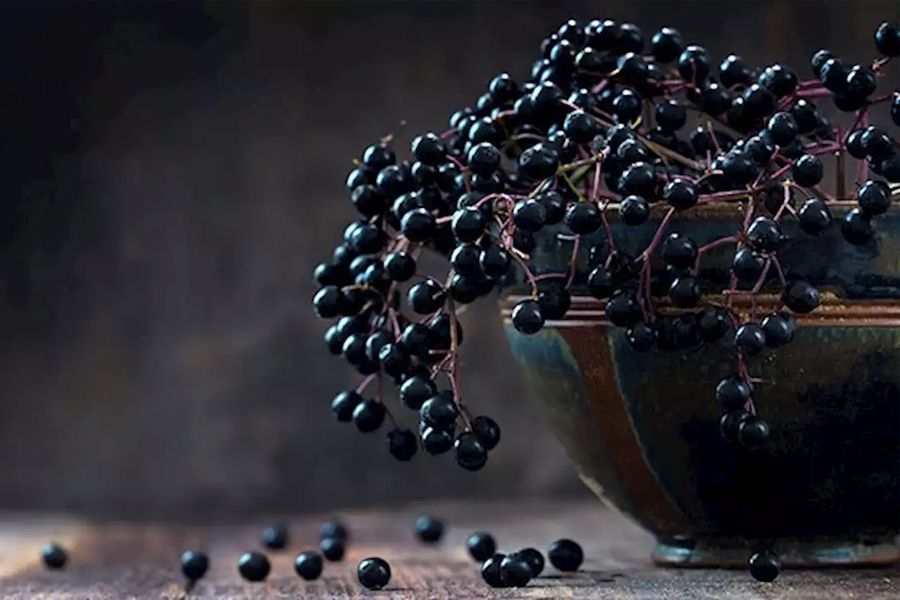
1. Elderberry
Available in a variety of forms, elderberries are chock full of antioxidants and vitamins. They’re reported to boost immune systems, reduce inflammation, and even improve heart health.
Scientific name: Sambucus nigra
Higher classification: Elderberry
Rank: Species
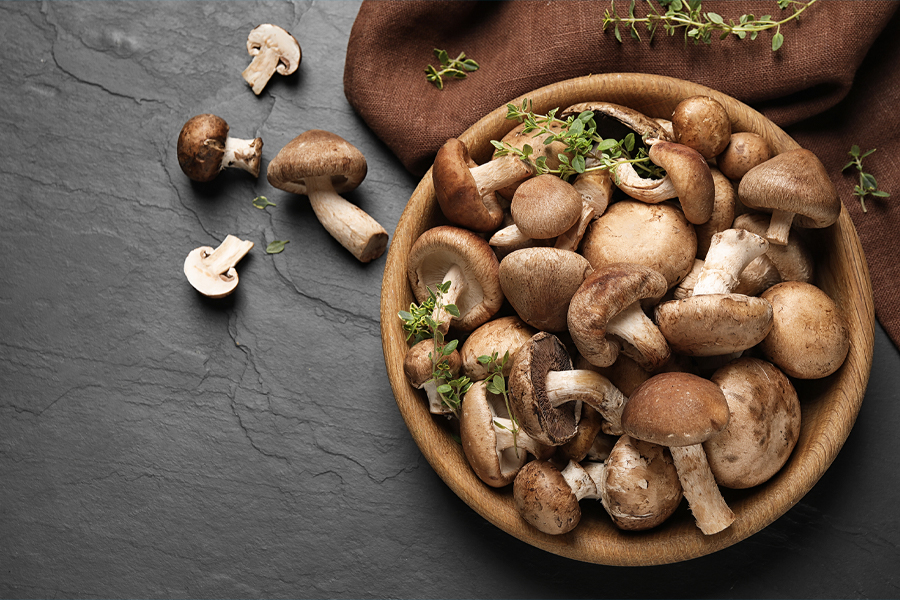
2. Shiitake Mushrooms
While most edible mushrooms deliver some form of health benefit, Shiitake mushrooms are particularly rich in vital nutrients and vitamins. They also contain 7 of the 8 essential amino acids.
Scientific name: Lentinula edodes
Order: Gilled mushrooms
Phylum: Basidiomycota
Higher classification: Lentinula
Rank: Species
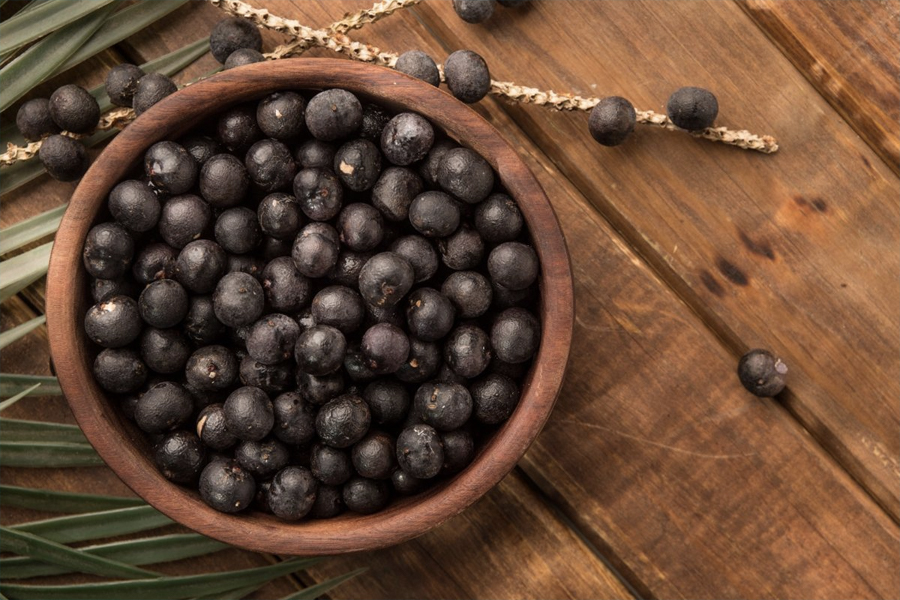
3. Acai Berry
More popular now than ever before, acai berries are high in anthocyanins, i.e. potent antioxidants that combat oxidative stress and reportedly boost immunity.
Order: Arecales
Family: Arecaceae
Scientific name: Euterpe oleracea
Higher classification: Euterpe
Rank: Species
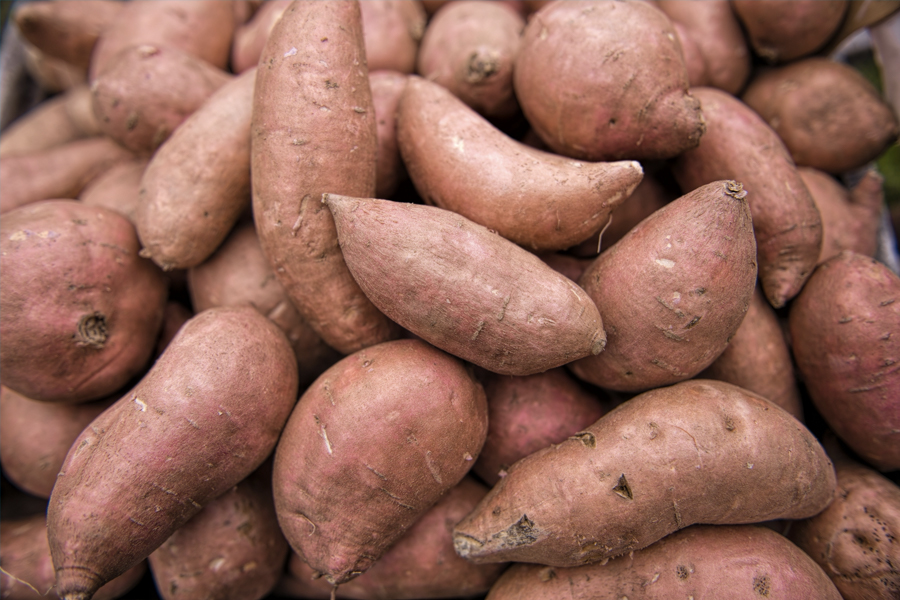
4. Sweet Potatoes
This fibre-rich food strengthens the immune system by way of vitamin A and beta carotene, which are also good for your heart, teeth, skin, and vision.
Scientific name: Ipomoea batatas
Higher classification: Ipomoea
Rank: Species
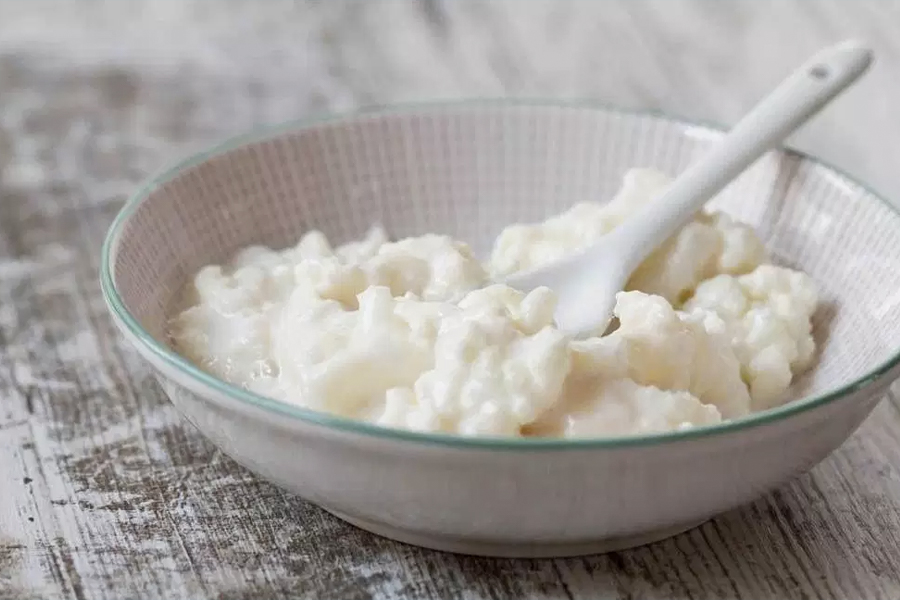
5. Kefir
This fermented milk drink contains a bevy of probiotics, including a good type of bacteria that can ward off harmful counterparts. Your immune system gets a vicarious boost.
Main ingredients: Milk, kefir grains
Alternative names: Milk kefir, búlgaros
Region or state: North Caucasus
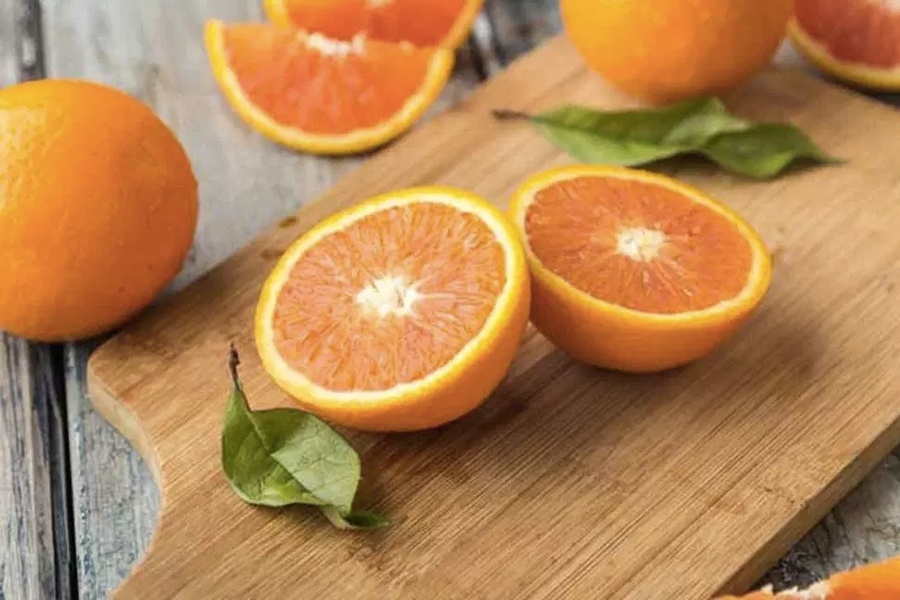
6. Citrus Fruits
Vitamin C has been correlated to increased production of white blood cells, which fight infections. Meanwhile, citrus fruits are rich in vitamin C. You do the math.
Scientific name: Citrus
Rank: Genus
Higher classification: Citreae
Order: Sapindales
Organism classification: Key lime, Rangpur, Myrtle-leaved orange tree
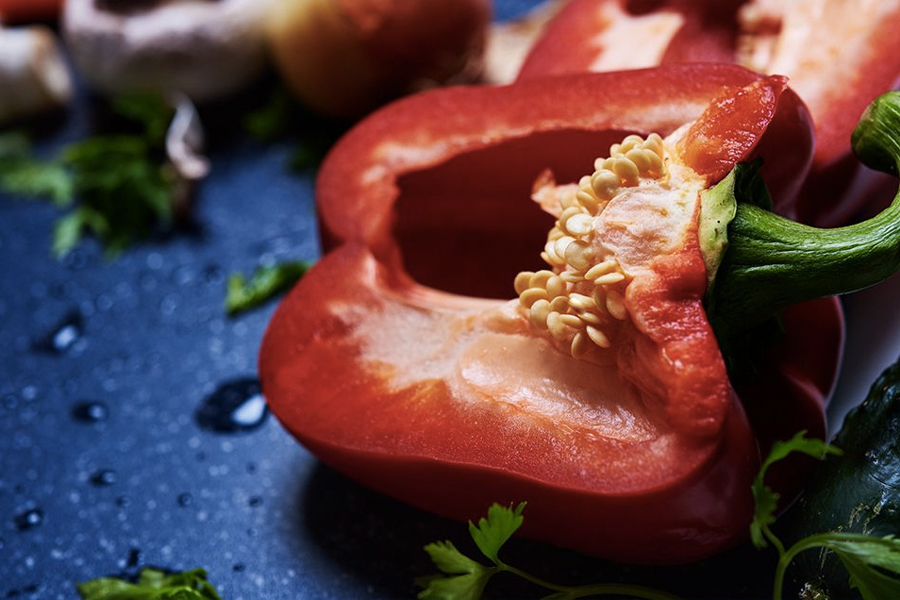
7. Red Bell Peppers
Not only are red bell peppers filled with more vitamin C than your average citrus fruit (twice as much, reportedly), they’re also a terrific source of beta carotene.
Scientific name: Capsicum annuum Group
Higher classification: Sweet and chili peppers
Scoville scale: 0 SHU
Rank: Cultivar group
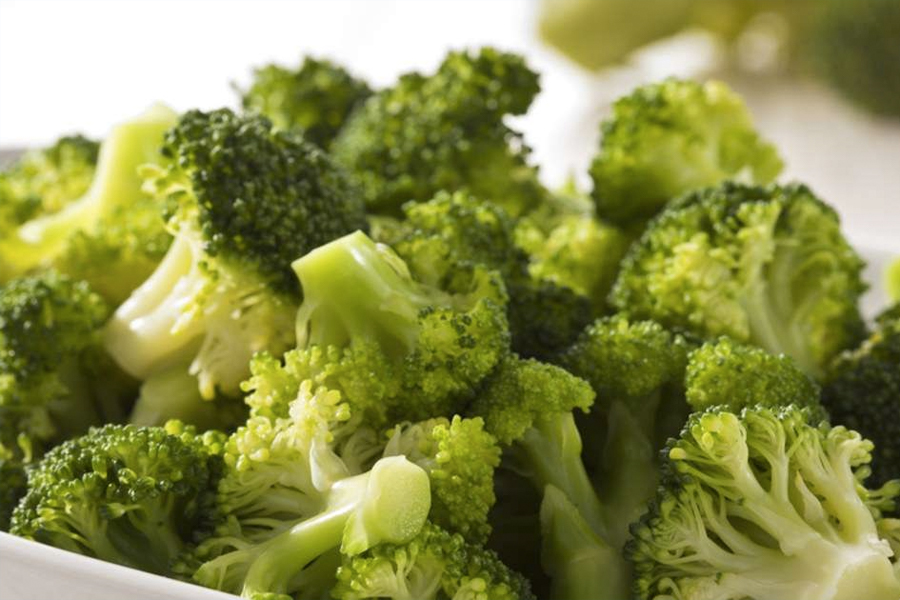
8. Broccoli
Give your immune system a boost with this health food staple, which includes vitamins A, C, and E, along with other antioxidants and plenty of fibre. Eat it raw or lightly cooked for the best results.
Scientific name: Brassica oleracea var. italica
Higher classification: Wild cabbage
Cultivar group: italica
Rank: Variety
Origin: Italy, more than 2,000 years ago
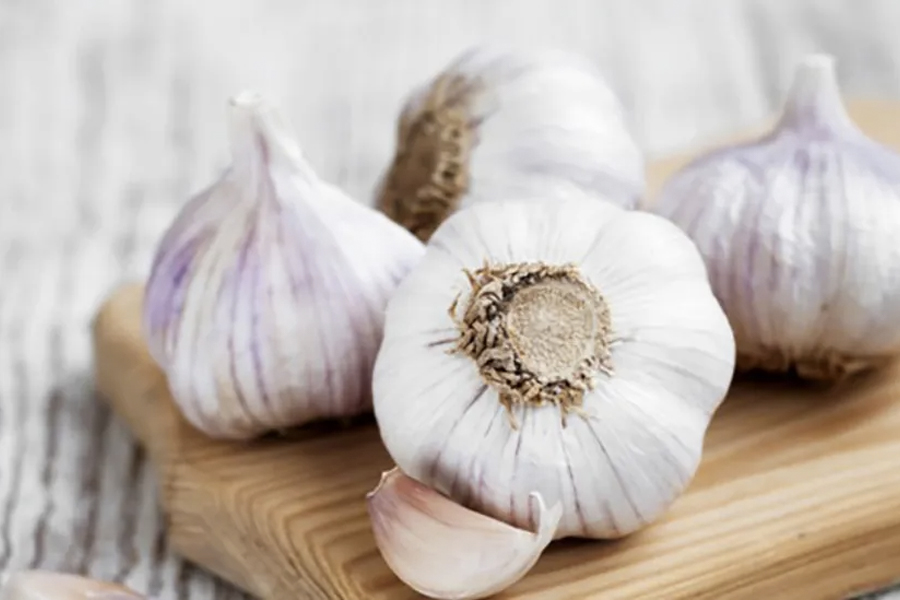
9. Garlic
Who can resist this immune-boosting food, which adds flavour to a host of dishes and contains a healthy compound called allicin? Not us.
Family: Amaryllidaceae
Scientific name: Allium sativum
Order: Asparagales
Kingdom: Plantae
Higher classification: Onions
Rank: Species
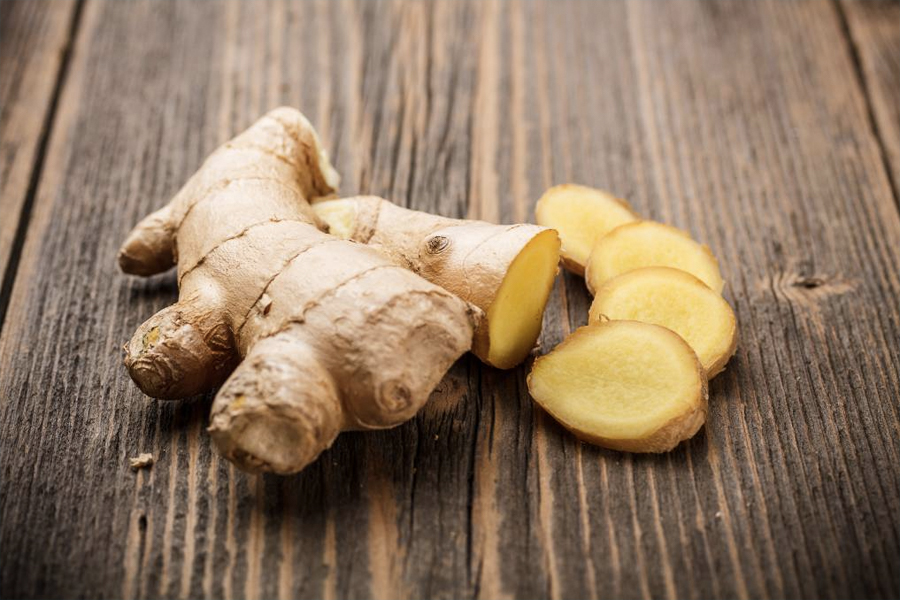
10. Ginger
Widely used as a (potential) remedy for various ailments, ginger packs all the right kinds of punch. More than an immune system booster, it can reportedly help decrease nausea, lower cholesterol, and even manage pain.
Scientific name: Zingiber officinale
Higher classification: Ginger
Rank: Species
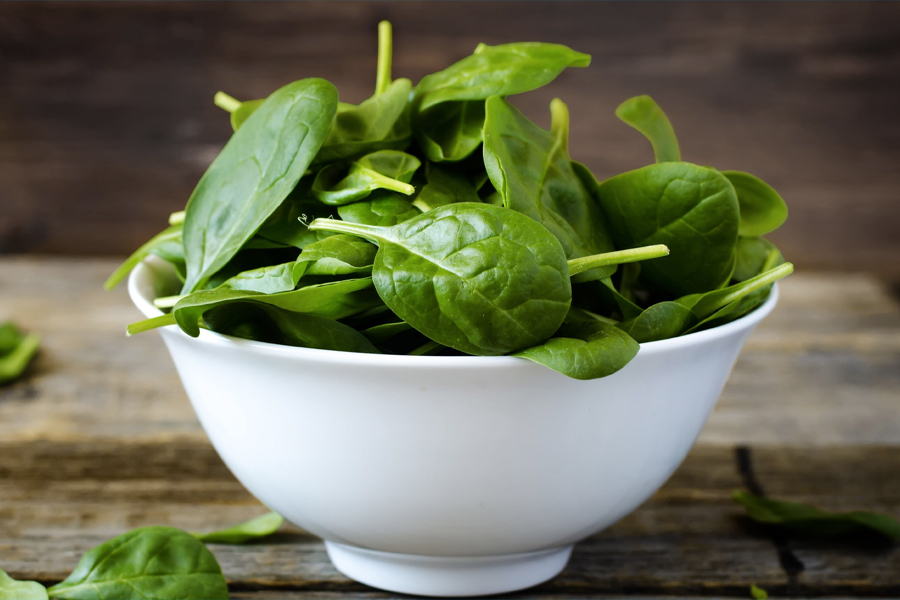
11. Spinach
There’s a reason Popeye eats his spinach, which goes big on vitamin C, various antioxidants, beta carotene, and more.
Iron: 2.71 mg (per 100 g)
Energy: 23.18 Calories (per 100 g)
Protein: 2.9 g (per 100 g)
Other constituents: Quantity
Vitamin E: 13% 2 mg
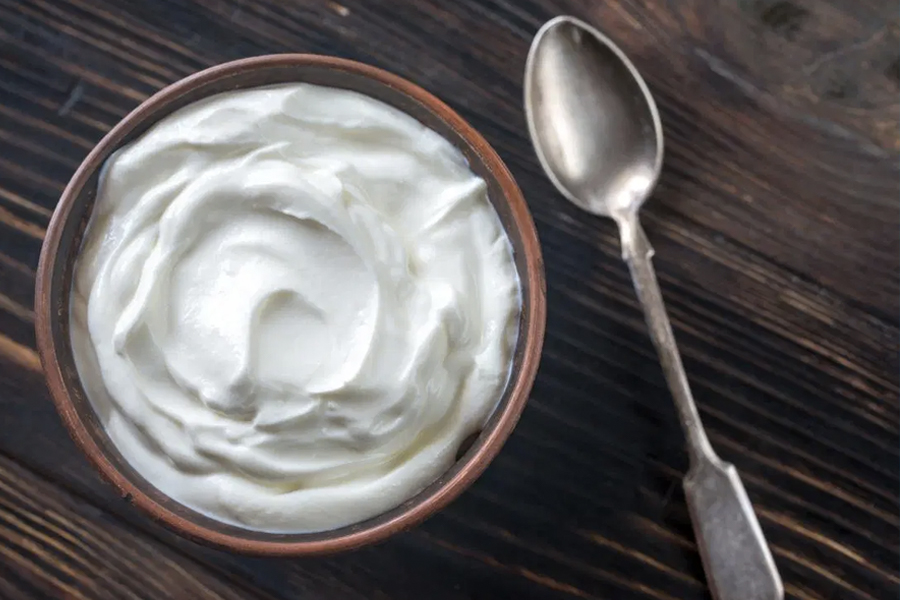
12. Greek Yoghurt
Avoid pre-flavoured varieties and add honey or fruit if you must. Look for “live and active” cultures on the label, as well as yoghurts that have been fortified with immune-boosting vitamin D.
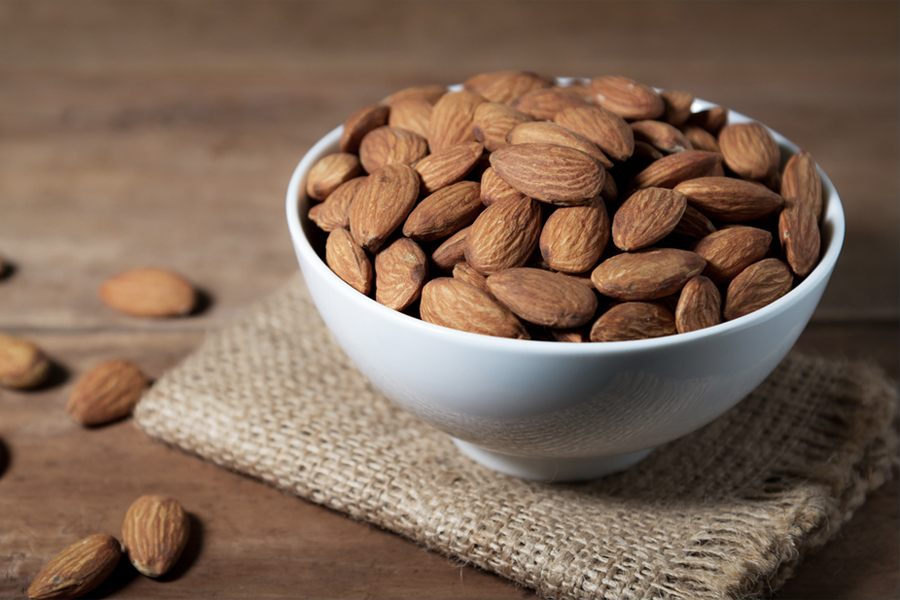
13. Almonds
One serving of whole, shelled almonds contains 100% of the recommended daily amount of vitamin E, a fat-soluble vitamin and an immune-boosting one at that.
Order: Rosales
Family: Rosaceae
Scientific name: Prunus dulcis
Kingdom: Plantae
Higher classification: Prunus
Rank: Species
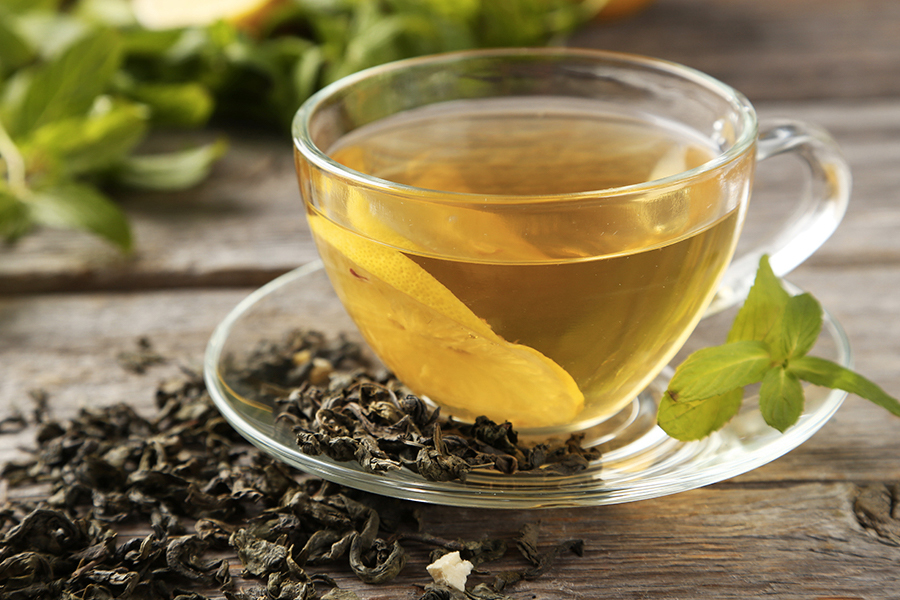
14. Green Tea
Because it’s steamed and not fermented, green tea retains high levels of epigallocatechin gallate (EGCG), a powerful antioxidant. It also contains the amino acid L-theanine, which may increase the production of germ-fighting compounds in your T-cells.
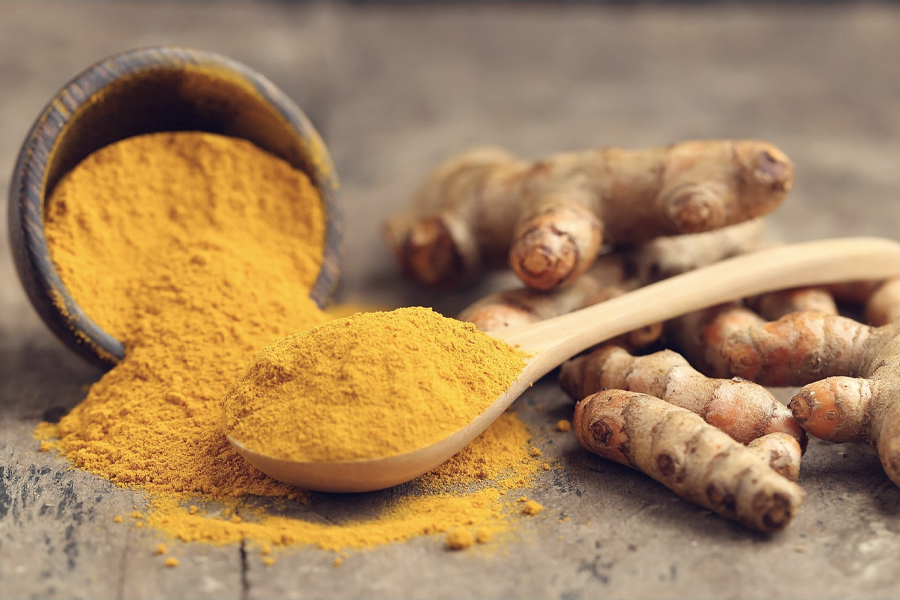
15. Turmeric
A key ingredient in curry, this immune-boosting spice is also used as an anti-inflammatory.
Scientific name: Curcuma longa
Family: Zingiberaceae
Order: Zingiberales
Kingdom: Plantae
Rank: Species
Higher classification: Hidden-lilies
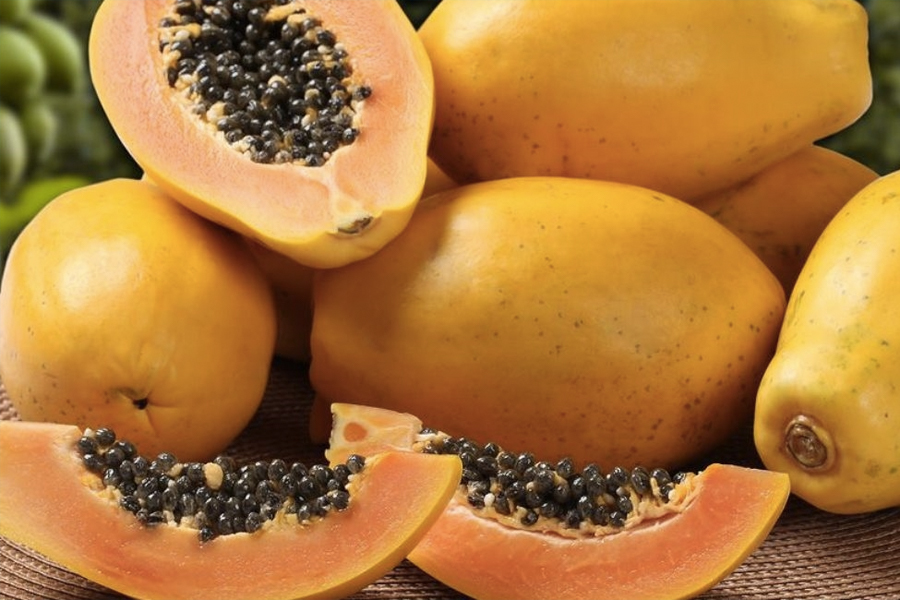
16. Papaya
Eat some papaya to load up on vitamin C and a digestive enzyme called papain. This fruit also contains respectable amounts of folate, potassium, and B vitamins.
Scientific name: Carica papaya
Family: Caricaceae
Kingdom: Plantae
Order: Brassicales
Rank: Species
Higher classification: Papaya
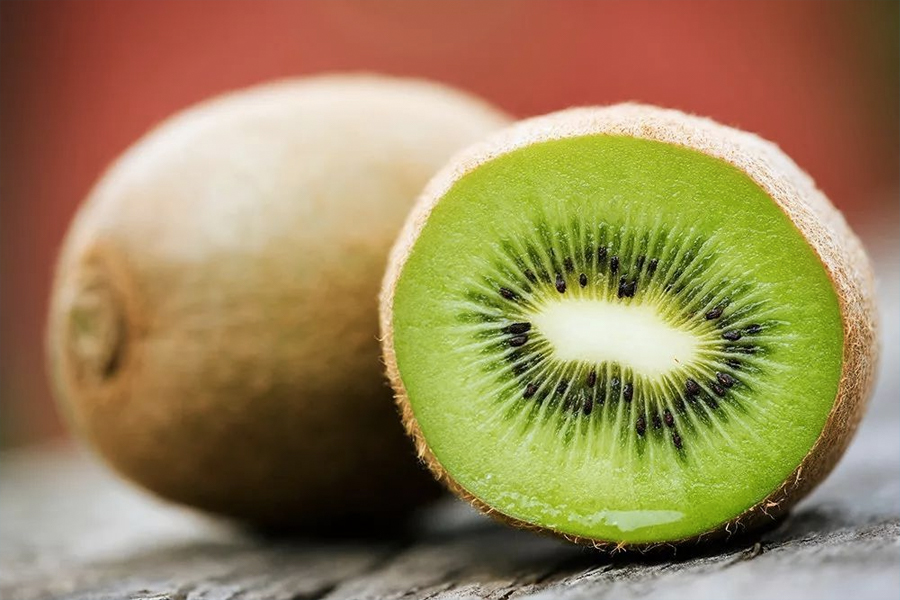
17. Kiwi
Small in size perhaps, but kiwis contain big amounts of essential nutrients such as folate, potassium, vitamin C, and vitamin K.
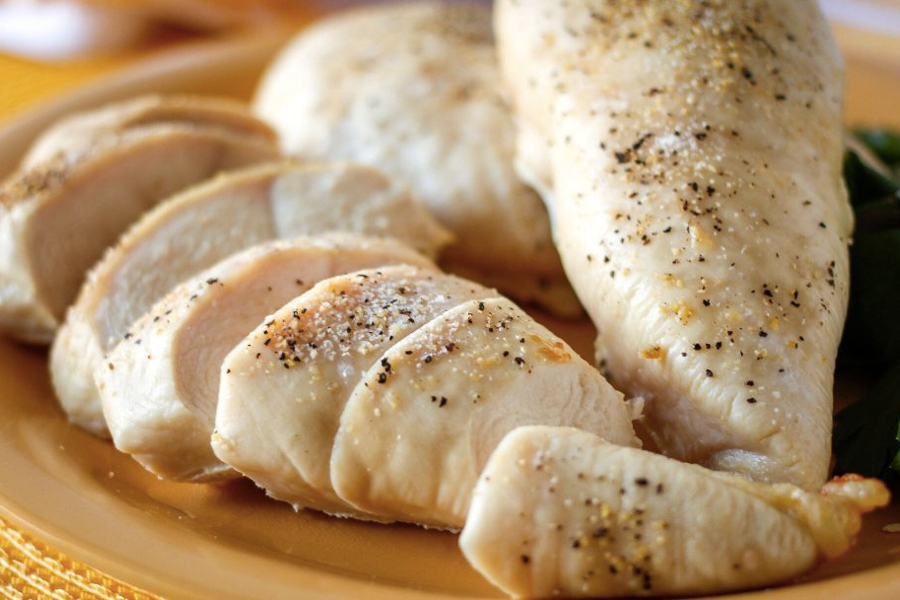
18. Poultry
Chicken or turkey delivers about 40-50% of your recommended vitamin B-6 intake, thereby helping with the formation of red blood cells.
Classification: Meat
Examples: Chicken, Turkey
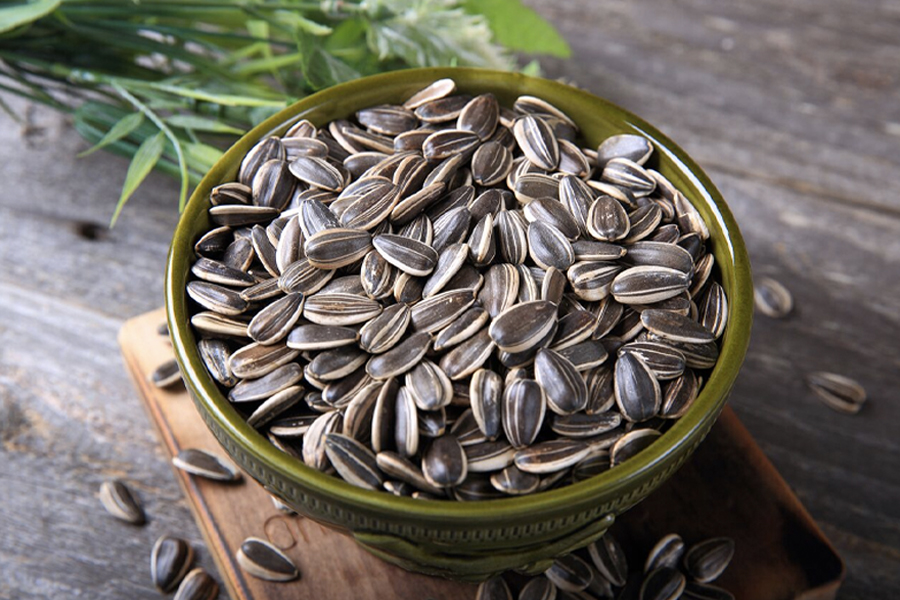
19. Sunflower Seeds
Within this bite-sized and immune-boosting food, you’ll find nutrients like phosphorous, magnesium, and vitamin B-6. Sunflower seeds are also rich in vitamin E, which is key to a healthy immune system.
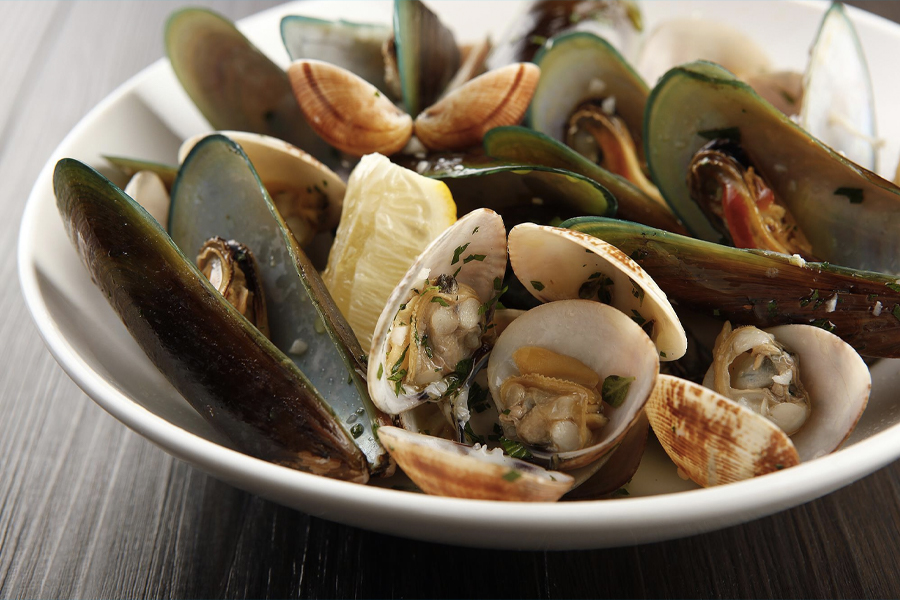
20. Shellfish
It might sound too good to be true, but shellfish such as crab, lobster, clams, and mussels bring the zinc, which helps your immune cells function properly.
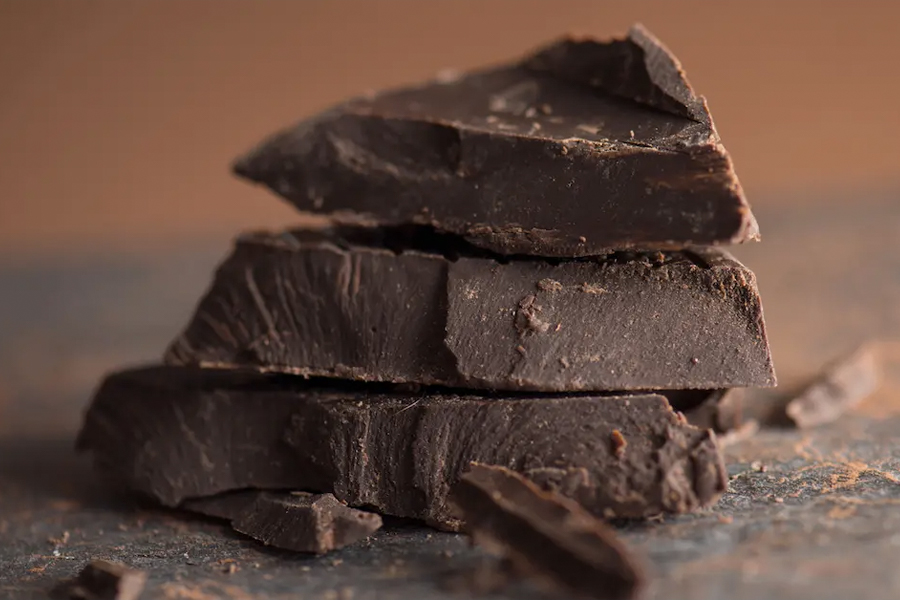
21. Dark chocolate
Speaking of things that sound too good to be true, it’s been reported that 70% (or higher) dark chocolate can reduce inflammation and help regulate your immune response. We’ll take it!
Contains: Magnesium, Iron, Protein, Potassium, Zinc, Fat
Other Ways to Boost Your Immune System
Eating a healthy and varied diet will only get you so far if you don’t make the right lifestyle choices. To properly boost your immune system, you should also take the following measures:
- Don’t smoke
- Drink in moderation
- Work out on a regular basis
- Maintain a healthy weight
- Get 7-8 hours of sleep a night
- Don’t overstress
- Try to avoid infections by washing your hands frequently, cooking meat thoroughly, and disinfecting areas that have been exposed to frequent human or animal contact
What is the Immune System?
The immune system is basically your inner body’s front line of defense against foreign substances and infectious agents. Consisting of white blood cells, antibodies, the spleen, thymus, bone marrow, complement system, and lymphatic system, it employs an immune response against germs and infections.
How Does the Immune System Work?
Like some sort of built-in military, the immune system detects antigens (i.e. foreign substances) and then tries to get rid of them by way of special proteins called antibodies. With help from T cells, antibodies lock onto specific antigens and then stick around even after the job is done. As a result, you’re all the more ready to ward off certain germs or foreign agents the next time they invade. This is why you usually don’t get chickenpox or similar diseases more than once.
When you receive a vaccination, antigens are injected into your body, but (ideally) without making you sick. Your immune system produces antibodies as a response, thereby protecting you from future attacks.

How Do You Boost Your Immune System?
For a number of people, the immune system weakens as one gets older. It’s therefore important that we know how to boost the immune system at any age. As you can probably guess, healthy lifestyle choices play a significant role. Everything from your vices to your diet to your fitness habits will affect the productivity of your immune system.
You should also be wary of miracle cures, holistic supplements, or experimental treatments like blood replacement therapy, as most of these methods are not supported by hard science. This is not how to boost your immune system during the current crisis, where a certain tier of precaution remains necessary.
How Does Diet Effect Your Immune System?
A poor or improper diet can weaken the immune system on multiple fronts. First and foremost, it can lead to significant weight gain, which poses all kinds of risks. On the flip side of that coin, if you eat too little and become malnourished, your immune system will likewise suffer for it.
There’s also evidence to suggest that vitamin and mineral deficiencies can weaken the immune system, as can an unhealthy gut biome. Suffice it to say, immune-boosting foods and a proper diet will definitely go a long way in terms of warding off infections and diseases.
Here are some quick pointers:
- Eat the rainbow – Consume lots of colourful fruits and veggies.
- Avoid processed foods and refined sugars – This one speaks for itself.
- Stay hydrated – Proper water consumption is fundamental to overall health.
- Get your daily intake of Vitamin C – This particular vitamin is a potent antioxidant, which has been reported to boost the immune system and reduce the severity and duration of various illnesses. Vitamins A, B-6, D, and E are also correlated with healthy immune systems.
- Consume probiotics and prebiotics – Both probiotics and prebiotics support the body in building and sustaining healthy bacteria and microorganisms, thereby promoting gut health and aiding with digestion.
- Ferment your veggies – A recent study found that fermented veg was rich in L.plantarum, a probiotic that may ward off flu symptoms and help with your body’s nutrient absorption.
General FAQ
If you have a strong immune system, you’ll be less susceptible to invasive germs and infections. One way to know that you have a healthy immune system is if you recover from sickness quickly. Increased levels of energy and physical well-being are also signs of a strong immune system.
Vitamins C, B-6, D, and E have been correlated with a healthy immune system. Try to get as many vitamins from natural food as possible. You can also take a multi-vitamin to make up for deficiencies.
Citrus fruits such as oranges and grapefruits are some of the best immune system boosters. Red bell peppers, papaya, kiwi, elderberry, and acai berry have also been correlated with strong immune system health.
You’ll also like:
7 Spots for the Best Teppanyaki in Brisbane
13 Spots for the Best Fish and Chips on the Gold Coast
10 Best Surgical Face Masks to Reduce the Spread of Germs
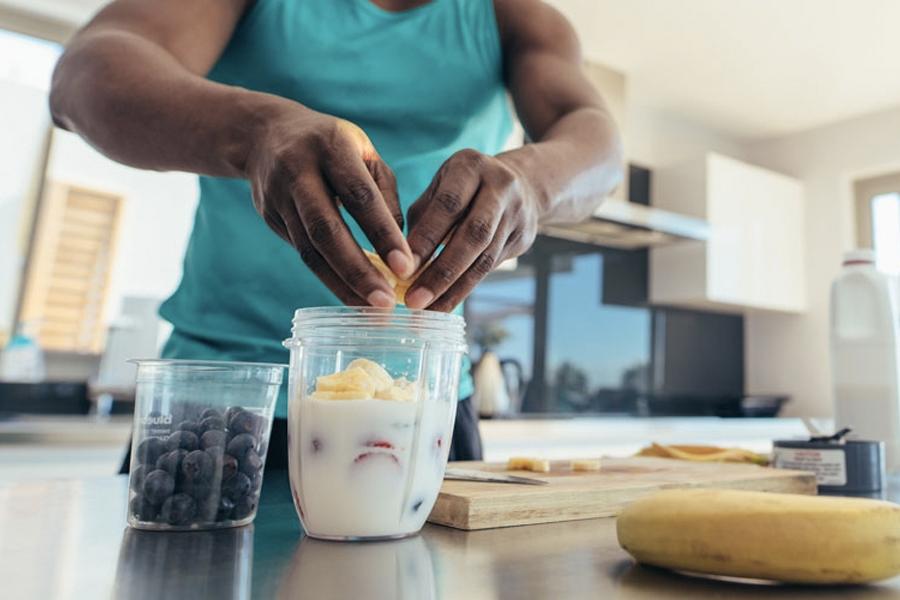




























Comments
We love hearing from you. or to leave a comment.